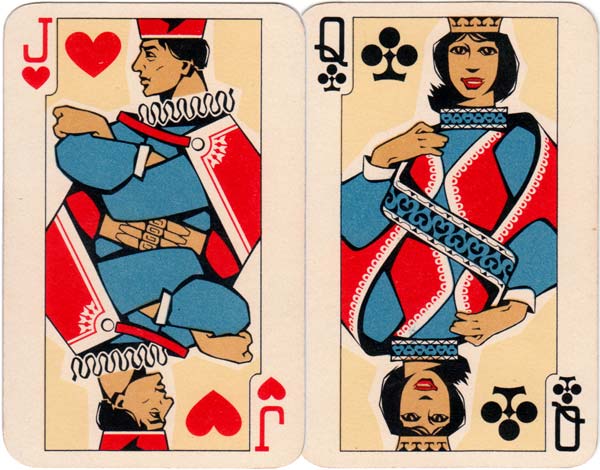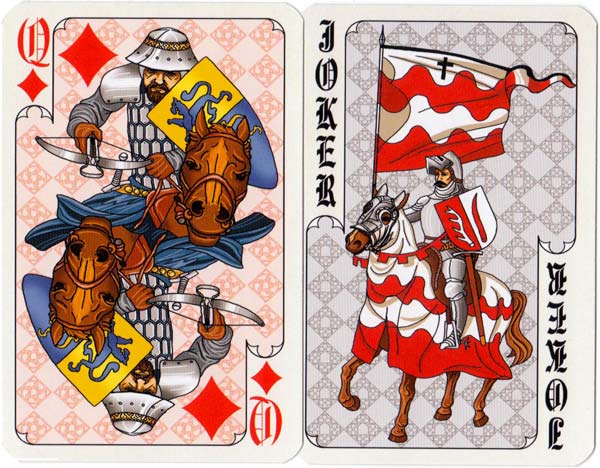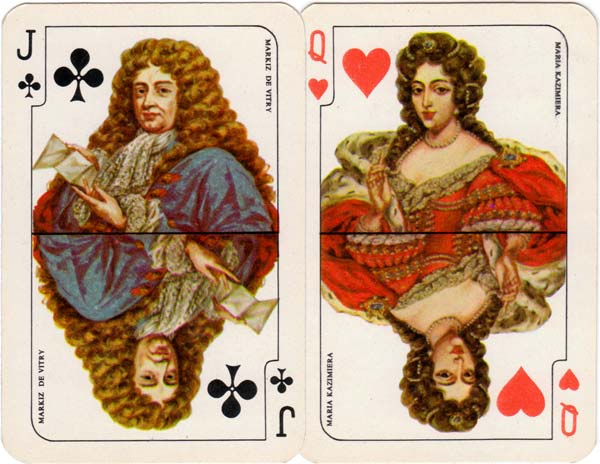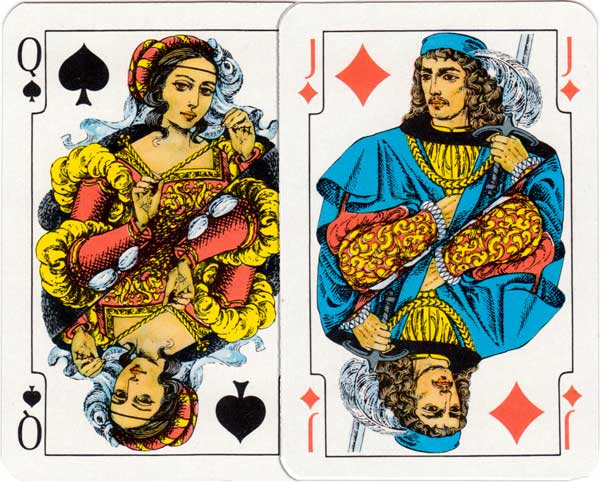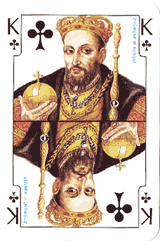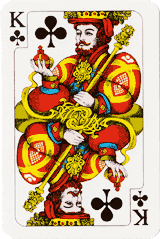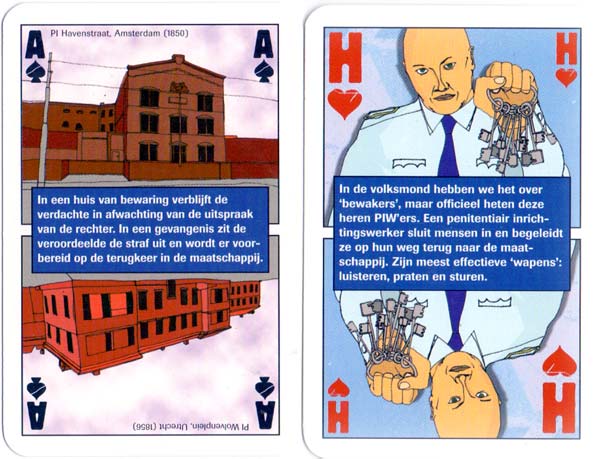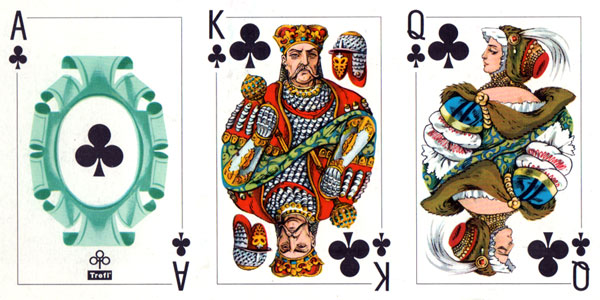Polish Playing Cards
Poland has been involved in playing card production since the 15th century.
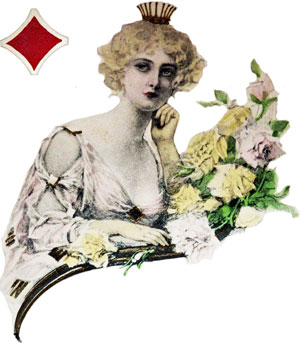
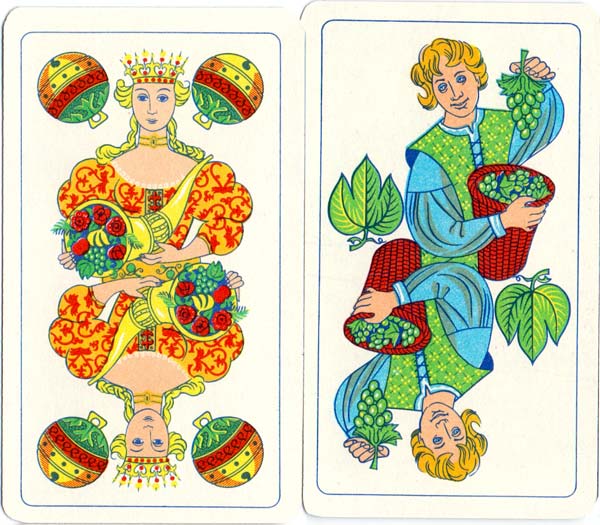
Above: Skat pack designed by Franciszek Bunsch in 1963
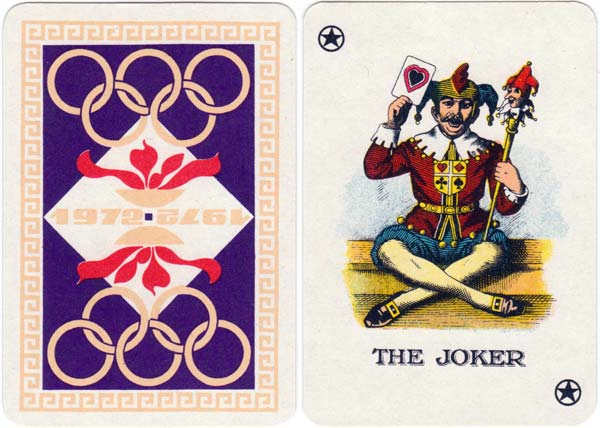
Above: 1972 special Olympics pack
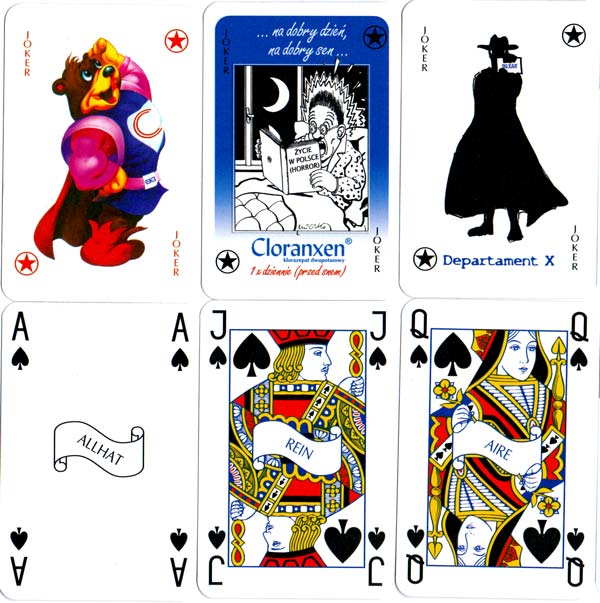
Above: Limited edition 'Cardiology Trials'
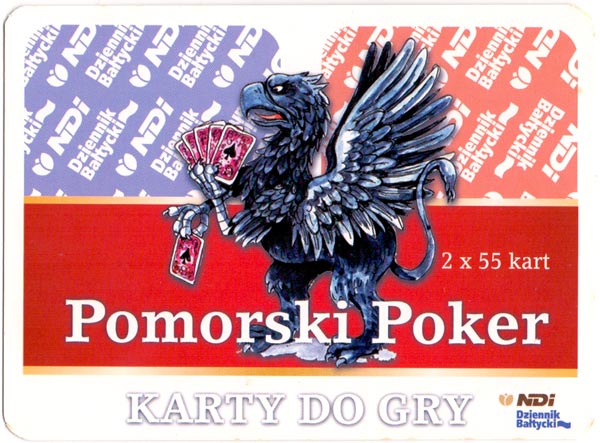
Above: Pomorski Poker, 2003
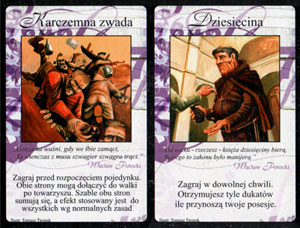
Above: ‘Veto’ Collectible Card Game, 2004
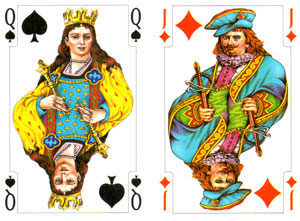
Above: ‘Królewskie’, 2002
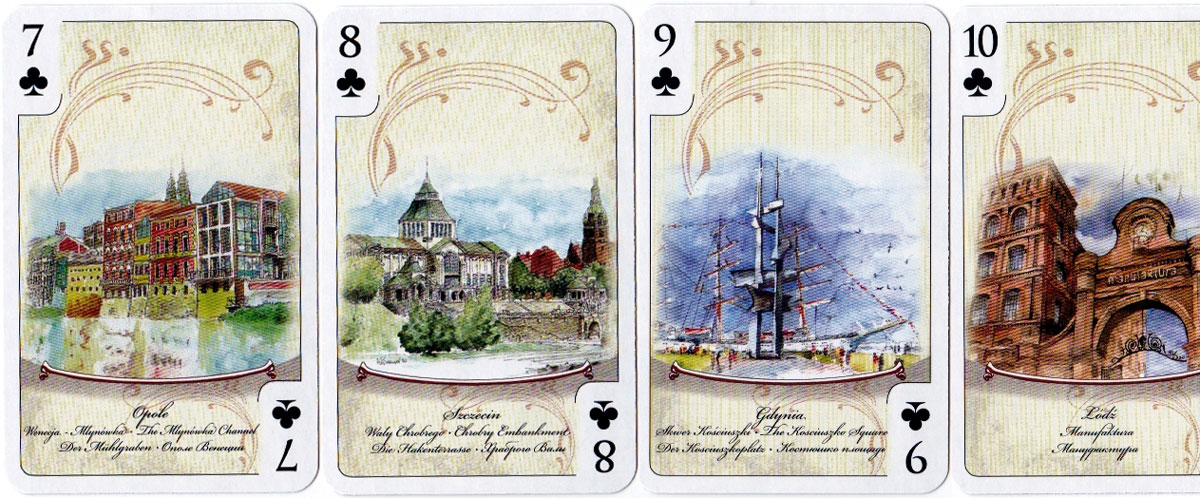
Above: ‘Polska’, 2011

Above: Polish tarot pack designed by Edyta Gdek
See also: Warka Beer Zarywski Automotive Cardiology Trials ‘Quickie’ Quartet Disney Collectible Cards ‘Veto’ Collectible Card Game Klipp Klapp Karten North German pattern by KZWP-Trefl for Fortuna Speelkaarten Bavarian pattern by KZWP-Trefl for InnoCard International.

oland has been involved in playing card production since the 15th century. During the 16th century cards were being made in L'vov (Lemberg), Breslau, Posen, Olkusz and Cracow. In 1507 the German philosopher Thomas Murner published 'Logica Memorativa' in Cracow, in the form of a book illustrated by a series of pictorial playing cards with 16 suits.
Polish cards followed Austro-Hungarian and German models such as Trappola packs, tarots, and more recently imitated the 'Rhineland', 'Baronese', 'Berlin', 'Viennese', 'Lemberg' and 'Prussian' patterns, as well as the Anglo-American. 19th and 20th century Polish manufacturers include J.A. Willink (Warsaw), Pierwsza Gal. Fabr. Kart do Gry and Karpalit S.A. of L'vov, the Cracow Playing Card Factory (1926-1939) and the state-run Krakowskie Zaklady Wyrobów Papierowych (Cracow Factory for Paper Articles, 1947-1997) who became the market leaders in Poland.

From the start, KZWP had strong associations with the Cracow Art College leading to collaboration with designers such as Franciszek Bunsch, Anna Gaber, Maria Orowska-Gabry and more recently Radoslaw Radziejewski and Edyta Gdek. Over the decades KZWP has produced many attractive advertising and decorative non-standard cards. (Click on images to see more). In 1997 KZWP was privatised and re-named Krakowskie Zaklady Wyrobów Papierowych Trefl - Kraków Sp. z.o.o. The company continues to produce the full traditional range of playing cards, games, tarot cards, advertising playing cards and other paper products.

Above: Polish matchbox cards
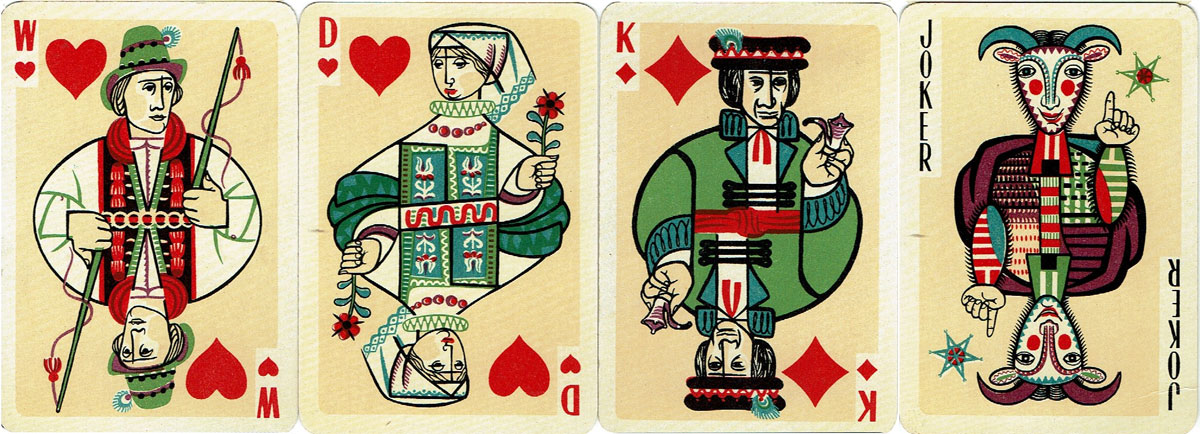
Above: Folk Cards for Lot Polish Airlines designed by Krystyna Gruchalska-Bunsch, 1962.
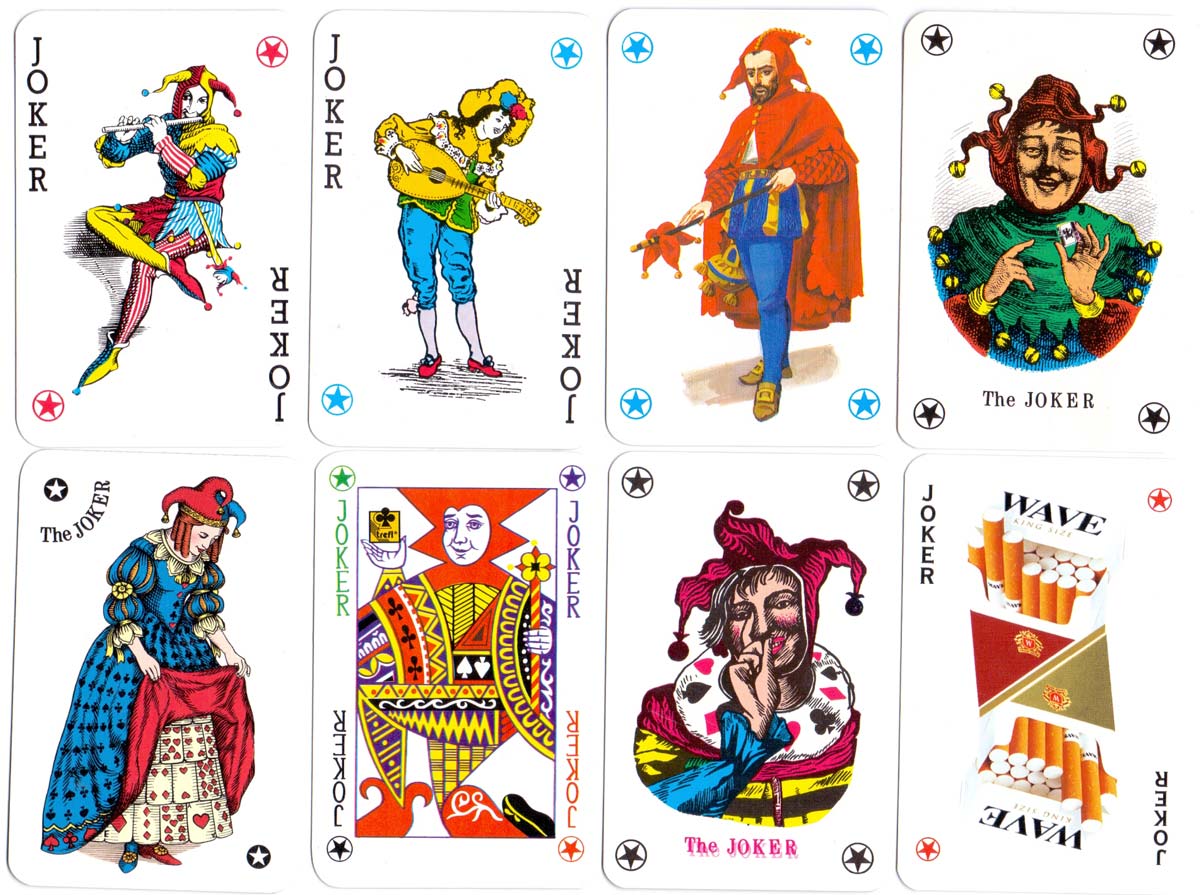
Above: Polish Joker cards by KZWP-Trefl, c.2002
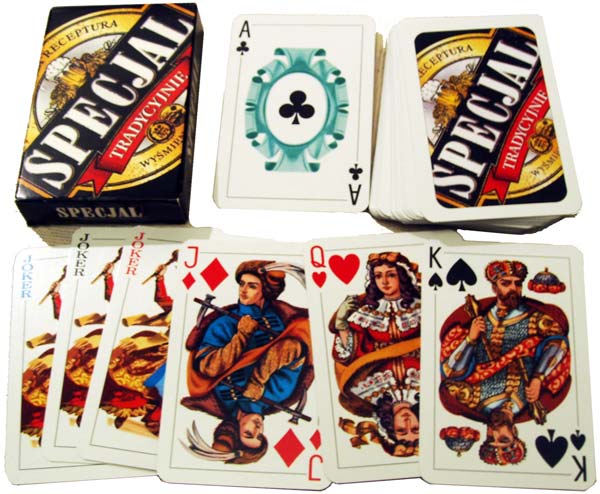

By Simon Wintle
Member since February 01, 1996
I am the founder of The World of Playing Cards (est. 1996), a website dedicated to the history, artistry and cultural significance of playing cards and tarot. Over the years I have researched various areas of the subject, acquired and traded collections and contributed as a committee member of the IPCS and graphics editor of The Playing-Card journal. Having lived in Chile, England, Wales, and now Spain, these experiences have shaped my work and passion for playing cards. Amongst my achievements is producing a limited-edition replica of a 17th-century English pack using woodblocks and stencils—a labour of love. Today, the World of Playing Cards is a global collaborative project, with my son Adam serving as the technical driving force behind its development. His innovative efforts have helped shape the site into the thriving hub it is today. You are warmly invited to become a contributor and share your enthusiasm.
Related Articles

Polish Kings and Queens – red deck
Polish kings and queens plus the court jester, illustrated in a distinctive style inspired by histor...

Tarock Cards by NIL Spielkartenfabrik
A deck of tarock cards from the eastern end of the ending Austro-Hungarian Empire.

Trappola cards from Poland
Trappola cards published in Warsaw by J G Du Port during the 18th century.

English Heritage
52 different colour photos of historic sites managed by English Heritage.

Trek Deck Malta Vol. 1
Innovative pack describing 52 different treks around Malta, Gozo and Comino.

Warka playing cards
Advertising pack for the Polish brewery Warka, featuring footballers, coaches and supporters.

The Malt Whiskies of Scotland
Three packs featuring photographs by Duncan McEwan of malt whisky distilleries in Scotland.

Specsavers playing cards
to help you see better when playing cards

Barok playing cards nr 232
Courts dressed in Baroque costumes in a pack printed by KZWP, Kraków, Poland, 1981.

Wrocław
Wrocław souvenir playing cards designed by Katarzyna Tomala, 2011.

Amistar playing cards
Publicity pack for product which controls fungal diseases in a range of crops, printed by Trefl, Kra...

Zamki Polski
Zamki Polski souvenir playing cards with 54 drawings of Polish castles.

Cyberpunk 2077 Tarot Cards
Polish cartoonist Jakub Rebelka created this set of tarot cards for the Cyberpunk 2077 video game.

Rzeszowskie Zakłady Farmaceutyczne “Polfa”
Photographs of pharmaceutical products, produced for RZF, Rzeszów, Poland, c.1995.

Dertor Bridge
Cards intended for international use by Dertor Sp. z o.o., Warsaw, Poland, c.2001.

Edinburgh Festival Fringe
Edinburgh Festival Fringe programme covers from 1956 to 2016 published by Winning Moves UK Ltd.
Most Popular
Our top articles from the past 28 days


